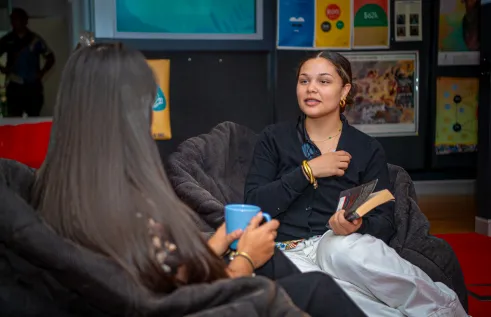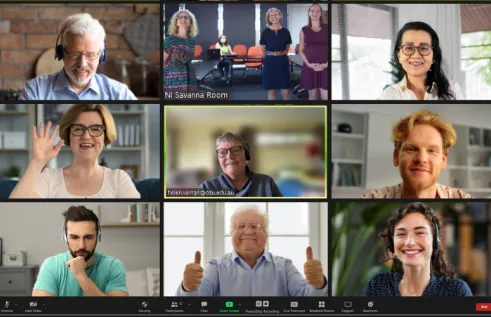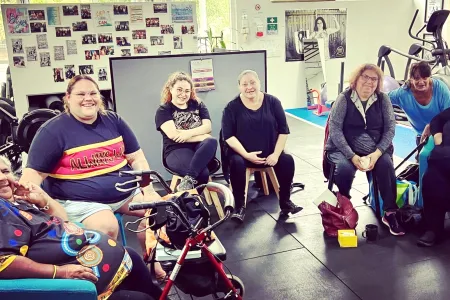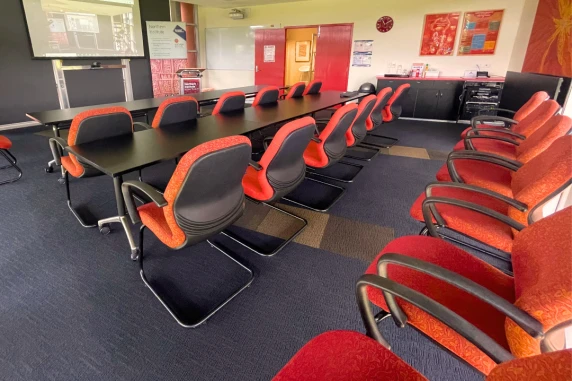Northern Institute
Medical Yarn Ups (MYUs): Decolonising Health Care Delivery
| Presenter | Kalinda Wills and Willow Firth | |
|---|---|---|
| Date/Time |
to
|
|
| Contact person |
Northern Institute
|
|
| Location | Savanna Room, Northern Institute, CDU Casuarina Campus (Y1.2.48) | |
| Open to | Public | |
About
Waminda (NSW South Coast Women’s Health and Wellbeing Aboriginal Corporation) and Associate Professor John Stevens have been developing a process called Shared Medical Appointments (SMAs) as a culturally safe way to support Aboriginal communities in their health journeys. SMA’s allow safe access to medical professionals whilst providing peer support and relationship building, eliminating any power imbalances often experienced in health care delivery. SMA have been embedded into Waminda’s model of care, designed to promote self-determination, which will always lead to improved health outcomes. This presentation provides an overview of the most recent co-designed diabetes program, which led to exciting results, including the remission of Type 2 diabetes.
“These women were empowered to make decisions about what was going to happen, which led to high engagement in the program and remarkable success.”
- Associate Professor John Stevens.
Project info: Continuous Glucose Monitors and Programmed Shared Medical Appointments in Managing Type 2 Diabetes Mellitus Among First Nation Women in Australia: A Co-Designed Feasibility Study. John Stevens (SCU), Willow Firth (Waminda), Lynne Dooley (Waminda), Hayley Longbottom (Waminda), Kalinda Wills (Waminda), Garry Egger (SCU), and Bob Morgan (University of Newcastle).
Presenters:
Kalinda Wills is a proud Jerrinja-Wandi-Wandian-Wodi-Wodi Woman from the Cullunghutti Mountain who grew up on the Jerrinja Aboriginal Community. Kalinda has been employed with Waminda's South Coast Women's Health and Wellbeing Aboriginal Corporation as a full-time 2018 Senior Aboriginal Primary Health Care Practitioner and Practice Manager. Kalinda has passion and dedication for all aspects of Aboriginal Health and Wellbeing and prides herself on providing culturally safe, strength-based, holistic health care to her people's physical, emotional, social, spiritual health and wellness within local Aboriginal communities.
Willow Firth has worked at Waminda for 15 years as a CDE, EP and Dead or Deadly Program coordinator. Willow is a Non-Indigenous Ally committed to walking alongside First Nations people towards improving health outcomes by decolonising health service delivery. Willow is currently doing a Master's via research in the field of diabetes.
Registration
In-person: Please note our presenters are joining us online from NSW. We will be screening the presentation from the NI Savanna Room, please RSVP here to watch in person—limited seating (30 ppl).
RSVP to attend in person
Online: Once you register, you will receive an individual link from Zoom no-reply@zoom.us
Register to attend online
Getting there
Savanna Room @ Northern Institute
CDU Casuarina Campus
Yellow Building 1, Level 2, Room 48
Google Maps location or How to get to Savanna Room.
Access: If you have any additional access or support requirements, please contact us. The Savanna Room is accessible using a lift or one flight of stairs through an automatic door. There is a wheelchair-accessible bathroom on Level 2 and a baby change room on Level 1 (ground floor).
Related Events

Why Cross‑Cultural Communication Matters in Indigenous-focused Research
A cross‑cultural research partnership grounded in respect, shared knowledge, and educational equity. Discover how collaboration shaped a transformative PhD journey.
Read more about Why Cross‑Cultural Communication Matters in Indigenous-focused Research
Thesis Talk
Thesis Talk is a facilitated academic discussion for HDR candidates to connect to and through ideas with research peers. Join the monthly online session to explore different topics, theories and practicalities. Talk through the nitty-gritty of research practices and reflect on your work.
Read more about Thesis Talk
'Climate Impacts on Country' Pop-Up Indigenous Art Exhibition
This powerful exhibition celebrates Indigenous culture by showcasing stunning artworks that explore the deep connections between climate, healing, and Country. Including a panel session with the Indigenous artists and researchers involved.
Read more about 'Climate Impacts on Country' Pop-Up Indigenous Art Exhibition

